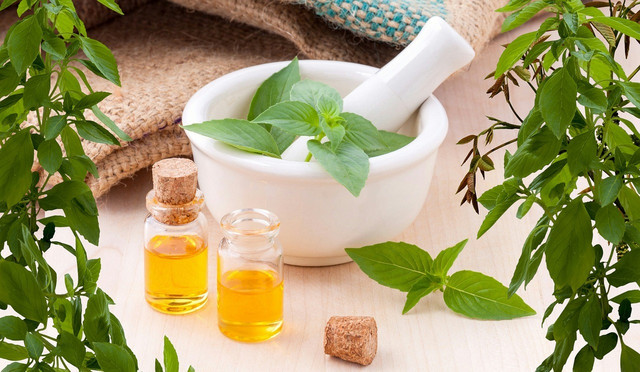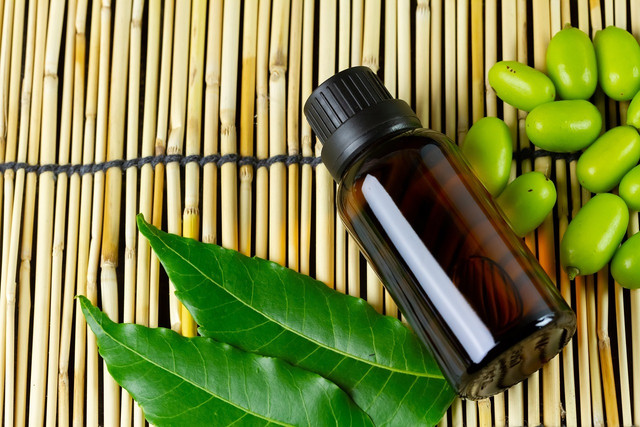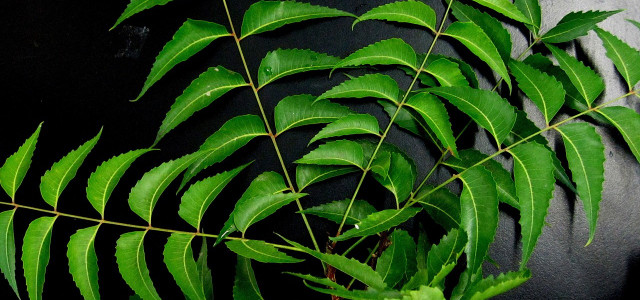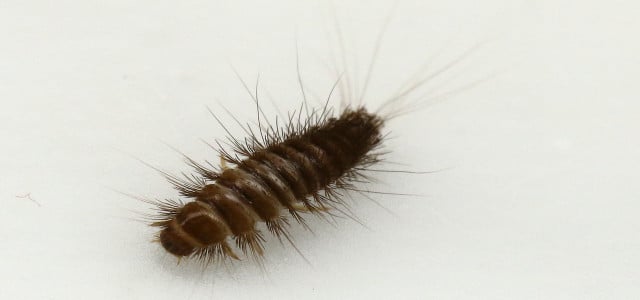Neem leaves benefits have been praised for centuries, from ancient times to modern medicine. We’ll discuss some of the uses and advantages of the neem leaf.
Neem leaves are a popular herbal medicine. They are an excellent natural remedy for many ailments and grow in many countries worldwide. Neem leaves have been used in India for hundreds of years to treat skin conditions, fever, and other health conditions. The leaves can also be used to make a delicious, refreshing tea for digestion and hydration. Today, we explore some of their uses, side effects and benefits.
What are Neem Leaves?

Neem leaves come from a mahogany tree native to India, the Azadirachta Indica. They have a place in Ayurveda medicine, dating back nearly 3000 years.
Neem leaves have a strong smell that is slightly sweet and has a hint of mint. The leaves are used in cooking and medicine, where they are often ground or left whole for dishes like curry or infused in water for medicinal purposes. Neem leaves can also be used in soaps and toothpastes.
However, for most, neem leaves’ benefits come from their use in alternate medical practice. As we’ll discuss, there is also some scientific basis for the healing properties of neem.
Neem Leaves Health Benefits



According to the Charaka Samhita, one of the most significant Ayurveda texts, neem historically belonged to a category of herbs used for skin disorders. It was believed to be an effective antiseptic and could be used to treat a wide range of ailments, from acne and eczema to skin allergies.
Currently, more than 80% of the developing world uses neem in some form of alternative medical practice. Because of this astounding figure, many modern-day scientists became interested in its effects.
In particular, one of the key active ingredients that has gained a lot of interest is the compound Triterpene. Triterpene is a naturally occurring organic compound known for its antiseptic, antifungal, and anti-inflammatory properties. Scientists believe that this and other neem leaf attributes may be useful in treating a wide range of conditions, such as cancer and diabetes.
However, they warn that there is a lack of standardization in how neem is used and tested in the field. Since neem comes in many forms, be careful about how you use it and know much you should take.
How to Use Neem Safely



If you are interested in trying neem, it’s advisable to check with a medical professional first. There have been instances of toxicity from its use. It is typically administered in its oil or leaf form. However, when used as an oil, it is far more potent. And for this reason, you should never consume neem oil — it is highly toxic and can cause liver failure. If you are using the oil, it should be for skin and hair only. And even in such cases, you should:
- Dilute it with a carrier like a coconut or olive oil at a ratio of 1:10.
- Always to a tester patch at least 24 hours before (do not use if any signs of irritation occur).
- Once diluted, rub the oil onto your hair or skin for no longer than 30 minutes, and no more than once a day.
If you are using neem leaves, these can be consumed, but always check the manufacturer’s instructions first. You can find pre-prepared neem leaf teas, capsules, and powders online to make this easier. For instance:
- Nature’s Way vegan-friendly neem leaf capsules (available on Amazon**)
- Blue Lily organic neem leaf powder (available on Amazon**)
Other Uses



Aside from health benefits, there is another popular neem leaf benefit to keep in mind — it can be used as a pesticide and insect repellent.
According to the National Pesticide Information Center, one of the components of neem is a chemical called Azadirachtin. Azadirachtin is one of the most popular commercial biopesticides and can be used as a natural repellent for insects and bugs.
Biopesticides are pesticides derived from natural materials. They are often considered more environmentally friendly and safer to use. Likewise, neem oil is effective because it has a short lifecycle, so it doesn’t do lasting environmental damage. Furthermore, it’s not toxic to birds or plants.
Key Takeaways
There are many science-backed and traditional neem leaves benefits. However, their commercial use remains largely untested. For this reason, we should always be careful whenever we try new products or routines. Start slow and check with the doctor to ensure you are getting the most out of these herbal wonders.
Read more:
- Natural Repellents: Use These 7 Essential Oils for Mosquitoes
- Clove Essential Oil Benefits & Side Effects
- Black Cumin Seed Oil: Benefits and Side Effects
Do you like this post?








